
Rob Hopkins has become one of the iconic figures of the environmental movement, not just in the UK but throughout the world.
“There’s no one on earth who’s just done more stuff – and inspired more doing – than Rob Hopkins,” as one admirer has put it.
He started the Transition movement in Totnes in 2005 and soon Transition Towns were springing up all over the country.
I went along to a few events where I lived, in Sussex, attracted by the idea of encouraging a shift away from industrial capitalism and consumerism into a healthier decentralised way of being.
There were some pleasant people involved, some of whom I already knew from local eco-campaigning, but it was not quite my thing.
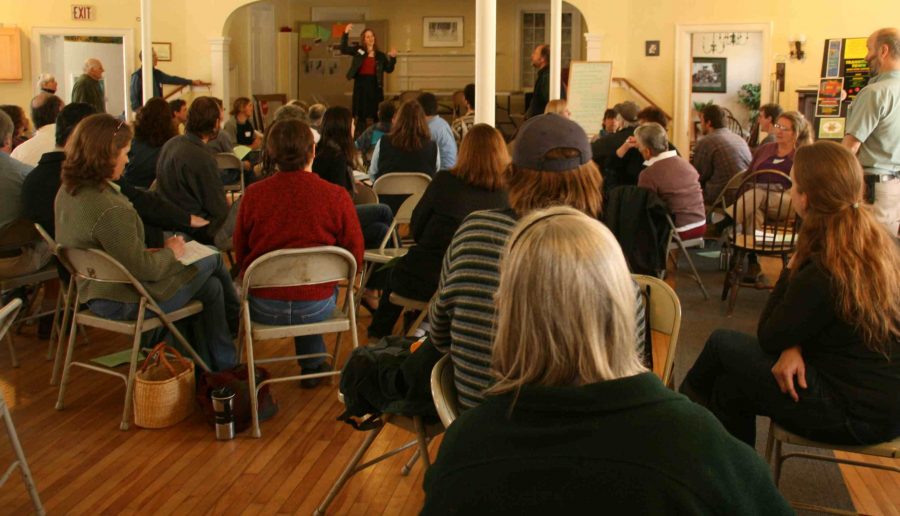
The Post-It note brainstorming sessions, rejection of “political” activity and much use of the UK state-approved term “resilience” all put me off a bit.
But I didn’t hold it against them. There is more than one way of campaigning and it’s unrealistic to imagine that everyone will do so in the way we personally would prefer.
I initially felt the same thing, from afar, about Extinction Rebellion until the penny dropped and I realised they were an astrofurf organisation being used to manipulate good-hearted people for hidden corporate ends.
So I drifted away from the Transition Town crowd with no hard feelings and didn’t really give them much more thought until last month.
It was then that I came across an essay entitled ‘The Great Transition: The Promise and Lure of the Times Ahead‘ written by something called the Global Scenario Group in 2002.
This announces: “The global transition has begun — a planetary society will take shape over the coming decades”.
The imminent “Planetary Phase of civilization” would involve “Global governance” and “Globalization”.
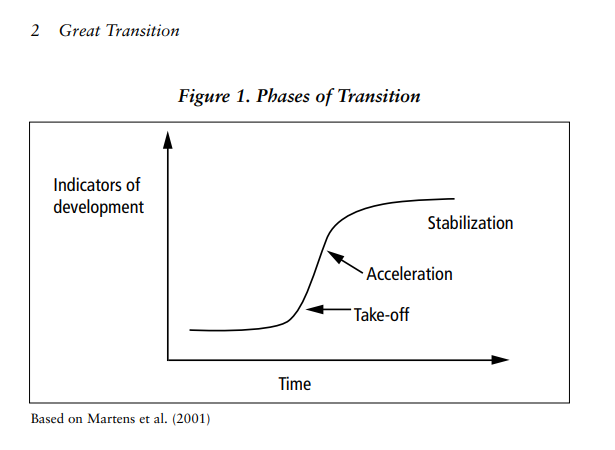
This “Great Transition” sounds very much like the Great Reset announced by Klaus Schwab and his World Economic Forum, also branded as the Fourth Industrial Revolution, Build Back Better and the Future We Want.
I was struck by the fact that this Great Transition document came out just three years before Rob launched his own “Transition” project in Devon.
But I was also very aware that he seemed to be proposing something very different – relocalisation rather than globalisation. Surely there could be no connection?
I decided, out of curiosity, to have a look at what Rob has been doing and saying, to see if this could shed any light on the matter.
The first thing I read was an article from August 2020 in which Rob sings the praises of the Climate and Ecological Emergency Bill, which he describes as “one of the few rays of hopeful sunshine in the UK’s currently bleak political landscape” and “rather brilliant”.
There were a couple of strange lines in Rob’s article.
For instance, he says that the future brought about by this Bill would “would feel like all of the brilliant inventiveness of the Industrial Revolution compressed into 20 years”.
“Brilliant inventiveness of the Industrial Revolution”? That’s a peculiar turn of phrase for anybody dedicated to combating the deadly damage caused to Mother Nature by industrialism!
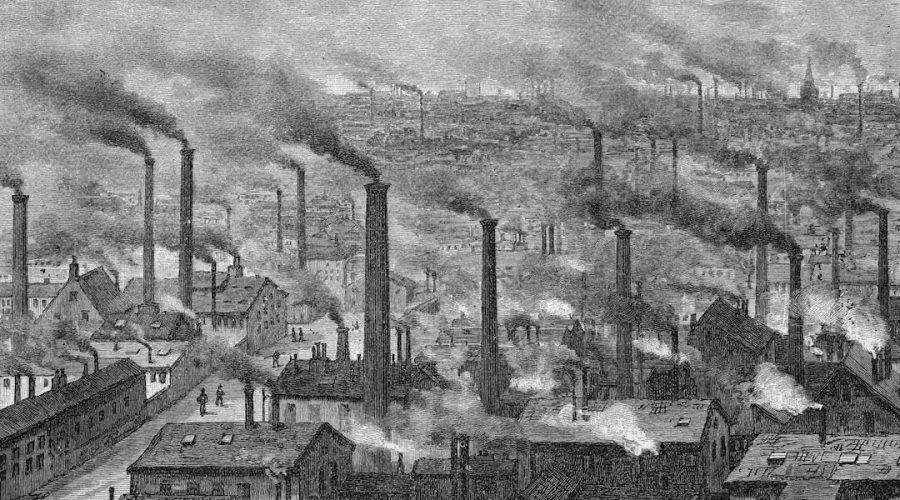
He also writes: “This Bill would give a clear signal to the education system, to business, to investors, that this is now the ‘new normal’…”
The new normal? Now where have we heard that before?
Browsing through Rob’s blog, I next noticed that he had been the “keynote speaker” at an event in Belgium on November 10, 2020.
Here he mixed his chosen theme of “the human imagination” with talk about “bold international action”, “governments acting with vision and purpose”, “individual lifestyle changes” and businesses acting with “a willingness to reimagine everything”.
If that last turn of phrase sounds familiar, it is perhaps because it had been used earlier in 2020 by Klaus Schwab: “We need to reimagine everything… What we need is a Great Reset”.
Hmmm.
I was also a little concerned to see Rob using the term “storytelling” in his talk, explaining how public opinion could be shaped by “a longing created not by graphs, by statistics, by policy, but by storytelling and imagination”.
“Storytelling” is a term often used by corporate manipulators to describe the opinion-forming propaganda with which they try to mislead us into endorsing agendas we would normally reject. (See this article, for instance, or this).
Rob continues: “So much of my work is about creating longing for that low carbon world”. “Creating” longing?
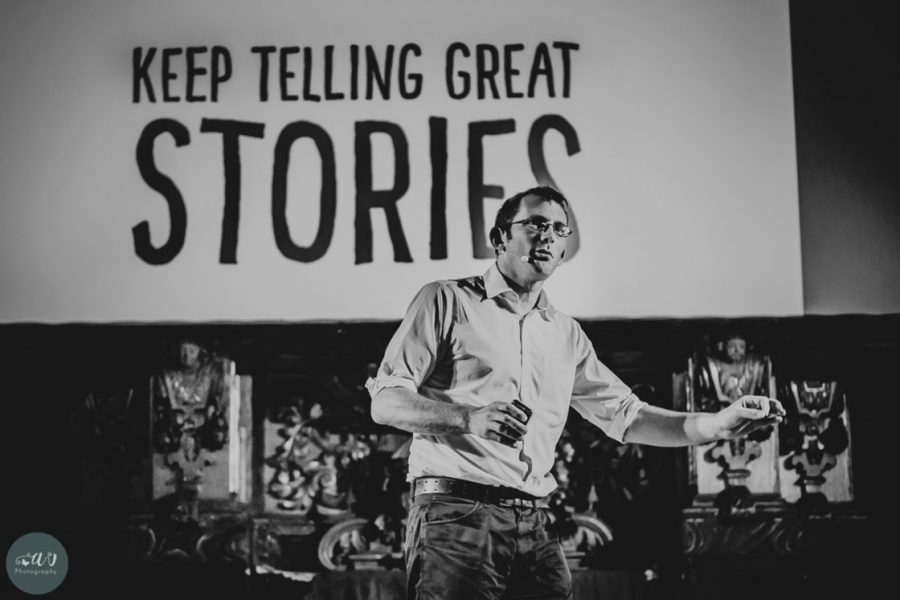
I decided to take a closer look at the event at which Rob’s speech was “widely applauded by the 200 or so participants” – the Philippe de Woot Award Ceremony organised by the Louvain School of Management at UCLouvain.
The award in question “aims to promote sustainability and Corporate Social Responsibility”.
Previous ceremonies have involved talks on topics such as “Citizen Participation in Smart Cities”, “The case of the Kenyan renewable energy sector” and a demonstration that “product carbon audits are a means to create value in supply chains“.
The award scheme boasts an impressive array of “financial partners“.
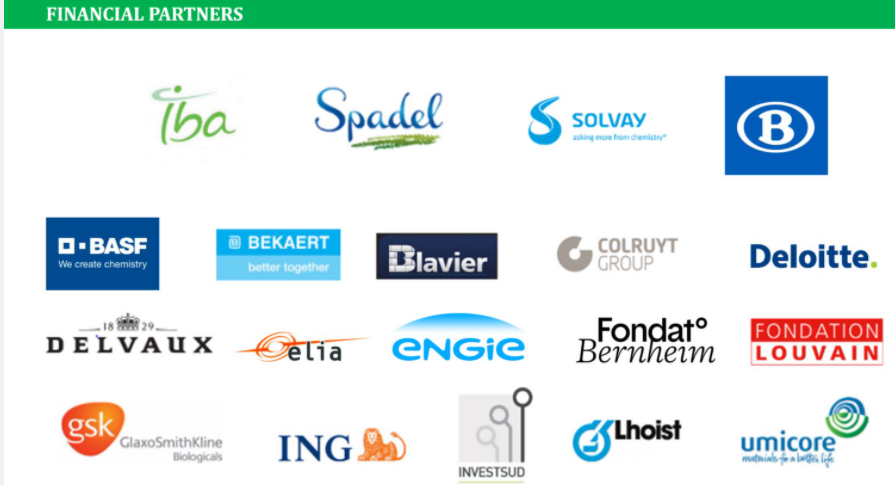
These include medical equipment business Iba (“We dare to develop innovative solutions pushing back the limits of technology”), chemical companies Solvay S.A. and BASF, steel wire business Bekaert, house-building firm Blavier, supermarket chain Colruyt, “professional services” business Deloitte, luxury leather goods firm Delvaux, multinational banking group ING, finance firm Investsud, minerals business Lhoist, mining company Umicore N.V, “clean energy” firm Engie (still using coal power stations in Chile), and, last but by no means least, GlaxoSmithKline Biologicals.
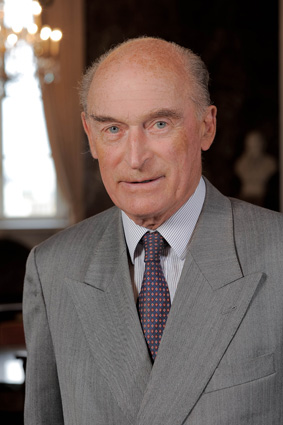
The award is named after Belgian aristocrat Philippe Emmanuel Marie Baron de Woot de Trixhe, who died in 2016, six years after it was first handed out.
Baron De Woot was evidently a very well-connected individual, having been a member of the European Academy of Sciences and Arts, the Royal Academy of Belgium and the International Academy of Management.
He also “served on the board of directors and advisory committees of several national and international corporations” and was “an active member” of the Global Responsible Leadership Initiative, an organisation founded in 2004 by the European Foundation for Management Development and the United Nations Global Compact.
The affinities between the late Baron’s world of business and global governance and Rob’s eco-friendly Transition project may seem hard to grasp – why did they choose him as their “keynote” speaker? – but this alignment is not a one-off.
In 2016, Rob’s work was cited by none other than Klaus Schwab’s World Economic Forum.
But then maybe they were just returning the favour, since in 2011 Rob had dedicated a blog post to discussing the “importance” of a WEF graph on “global risks”.
Delving further into Rob’s archives, I found this statement from March 2009: “I am delighted to be able to announce that I recently became a Fellow of Ashoka, the international organisation that supports social entrepreneurs.
“Becoming an Ashoka Fellow brings some great resource to Transition. It brings a stipend, which means for the first time I can be paid fulltime for the work I do, it also brings some amazing project support, both from Ashoka itself and from the range of organisations that offer pro bono work to them”.

Ashoka is a somewhat mysterious organisation which is funded by “charitable foundations” and wealthy individuals such as Antonis Schwarz, now of Guerrilla Foundation (see this article on the Winter Oak site) and provides advice to organizations such as the World Bank.
It is worth noting that the video was posted by Andres Falconer, who at the time was managing director of Ashoka UK and went on to become “head of partnerships” at the World Bank Secretariat for the Global Partnership for Social Accountability.
In August 2020 Falconer turned up as host of an online event for Climate Investment Funds, jointly staged with Climate Capital Partners (“We create climate finance solutions to help clients thrive in an ever-changing global environment”).
Another interesting aside regarding the video is that it involves what Rob describes as “some good people from Transition Stroud”.
Stroud in Gloucestershire, UK, would ten years later be hailed by The Guardian as “the gentle Cotswold town that spawned a radical protest”, as it was from here that Extinction Rebellion first surfaced.
Says the April 2019 report: “Two of the group’s three founders, Gail Bradbrook and her partner Simon Bramwell, live in the town.”
As regards the actual content of the video, Rob talks about decentralisation and relocalisation, as you would expect, but also about “resilience” and the need to come up with a “Plan B” for the economy.
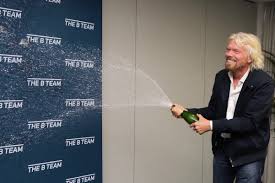
“A Plan B for business” was later to become the main slogan used by Richard Branson’s B Team (founded in 2012), one of the key hubs of the global “climate capitalist” network.
Rob identifies three challenges facing the world in 2009, a year after the economic crash.
These are peak oil, climate change and “the rapid contraction of the economy, which is something that is quite historically unprecedented”.
Why is that a challenge from the green point of view that Rob is supposed to represent? If you want to see an end to climate change and environmental destruction, then the contraction of the capitalist economy would be a good thing, wouldn’t it?
The contraction of the capitalist economy is only a problem for the capitalists who get rich from that economy.
Is the “challenge” for them in fact to keep their wealth and profiteering going in the face of an imminent collapse of their fraudulent global Ponzi scheme? Does the goal of “sustainability”, for them, really apply to capitalism, rather than the environment?
Like his friends in Extinction Rebellion, Rob is keen to avoid any scrutiny of the capitalist system and its ruling elite.
He says in the video: “One of the things that makes Transition different from a lot of the previous environmental campaigns that we’re both [he and Falconer?] familiar with is that it’s starting point isn’t trying to work out whose fault it is that we’ve got into this mess so it doesn’t attribute blame, it focuses on we’re all in this together…”
“We’re all in this together!” Uncanny how he keeps coming up with these phrases!
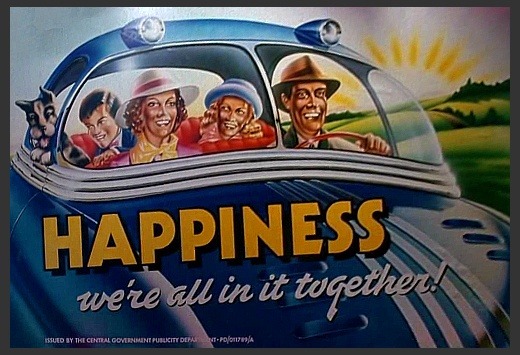
Zooming forward 11 years to 2020, the big news in Rob’s world is the arrival of a new book, “From What Is To What If“.
You can often learn a lot about someone’s place in society by looking at who is keenest to praise them and their work.
Remember that quote at the top of this article, for instance, about there being no one on earth who’s “done more stuff” than Rob Hopkins? That was Bill McKibben.
Yes, that’s right, the Bill McKibben who founded 350.org and whose gang of full-time climate “activists” were thoroughly exposed in the film “Planet of the Humans” as “de facto lobbyists for green tech billionaires and Wall Street investors determined to get their hands on the whopping $50 trillion profit opportunity that a full transition to renewable technology represents”.
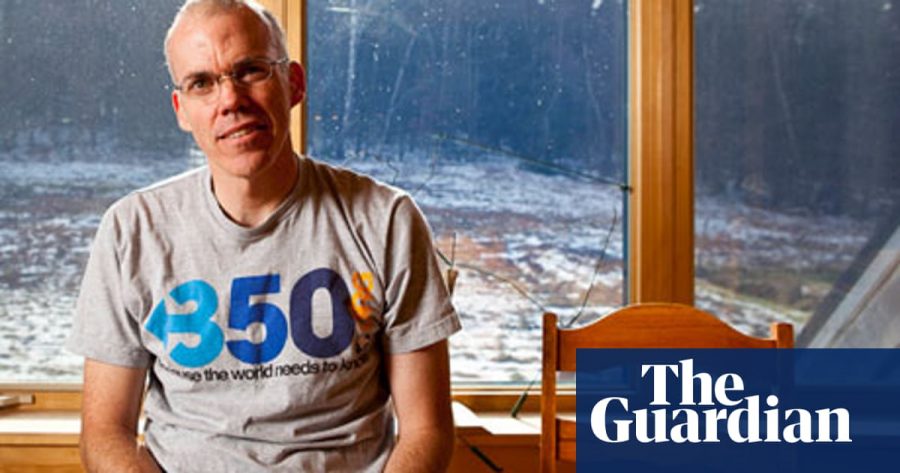
It’s very much the same story if you look at the rave reviews for Rob’s new book.
“I love this book. It is an extraordinary, reality-based report on people around the world applying the power of imagination to rebuild relationships and create a fulfilling, creative, and possible human future together. An essential read for all who care,” writes David C. Korten.
Korten has spent his life working for the likes of the Ford Foundation, the United States Agency for International Development (USAID) and the International Forum on Globalization. He is a member of the Club of Rome.
Here is another review: “Rob Hopkins has long been a leader in imagining how we could remake our societies for the benefit of nature and humankind. His new book is a powerful call to imagine a better world. It should be widely read and appreciated”.
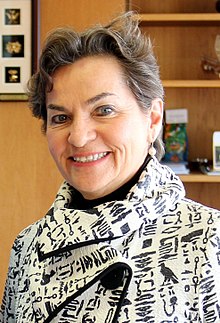
That one comes from Christiana Figueres, executive secretary of the United Nations Framework Convention on Climate Change and World Bank Climate Leader, whose brother José María Figueres was the first CEO of the World Economic Forum, “where he strengthened global corporate ties to social and governmental sectors”.
For more on Figueres and her family, see this Winter Oak article.
Just as worrying as these endorsements for Rob’s work is the way he seems to give little nods of affiliation to the global capitalist elite by slipping their catchphrases into his own statements.
“Plan B”… “new normal”… “we’re all in this together”… “storytelling”… “reimagine everything”… Could all this really be down to coincidence?
Any lingering shred of doubt in this respect is swept away by the subheading of Rob’s new book – “Unleashing the Power of Imagination to Create the Future We Want”.
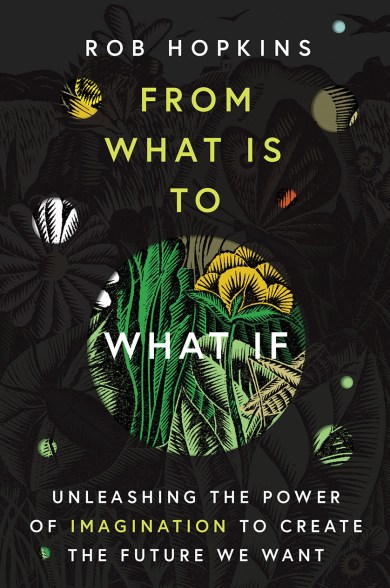
The Future We Want! One of the branding slogans used to package Klaus Schwab’s Great Reset!
In his talk to the Philippe de Woot Award Ceremony, Rob described an exercise in which, echoing the title of his book, he invited groups of people “to come up with as many ‘What If’ questions they could”.
I would like to take part in this little game with some “What if” questions of my own.
What if Rob’s famous Transition project was never really about empowering local communities, about the relocalisation of society and a return to a natural way of living?
What if it has, all along, been a cunningly-disguised long-term “storytelling” propaganda exercise, softening up public opinion, building “social licence” and “creating longing” for the Great Transition aka the Great Reset?
What if its real roots do not lie in the organic allotments of Totnes, but in the boardrooms of mega-corporations and investment funds, at the UN, the World Bank and the WEF, in the toxic realm of a global power elite seeking to consolidate its complete control over humanity and the natural world?
What if Rob Hopkins is a total fake?
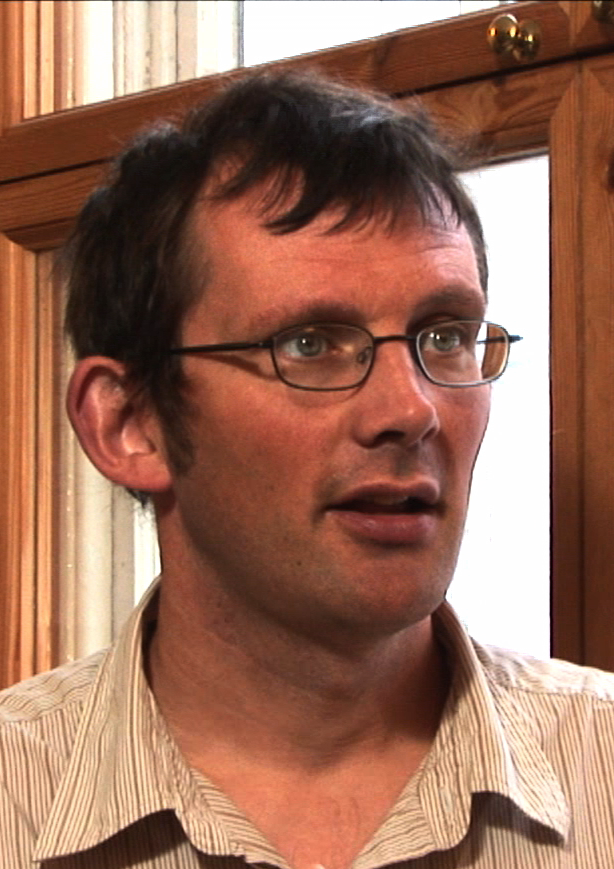
Leave a Reply